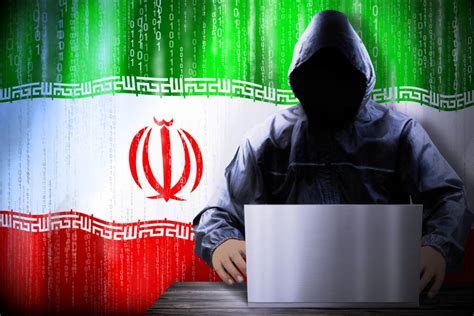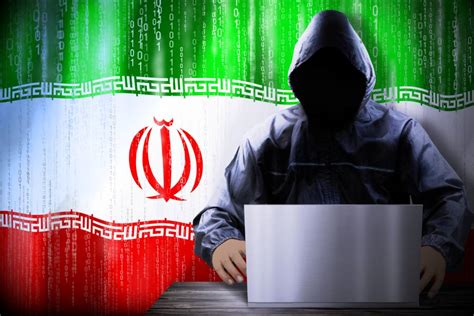
Suspected Israeli hackers reportedly breached Iran’s Bank Mellat, one of the country’s largest financial institutions, in a cyberattack that allegedly siphoned funds and compromised sensitive data. The cyber operation, attributed to a group with suspected ties to Israel, underscores the escalating cyber warfare between the two nations and its potential impact on Iran’s financial stability and national security.
The attack, which reportedly occurred a few weeks ago but only recently came to light, targeted Bank Mellat’s core banking systems, allowing the attackers to transfer funds out of the country and access critical customer and financial data. While the exact amount stolen remains unconfirmed, sources familiar with the matter suggest it could be substantial, potentially impacting Iran’s ability to conduct international financial transactions.
The cyberattack represents a significant escalation in the ongoing shadow war between Israel and Iran. While neither country officially acknowledges its involvement in such activities, both have been implicated in numerous cyberattacks targeting each other’s critical infrastructure, government networks, and financial institutions. This latest incident follows a series of similar attacks, including previous intrusions into Iran’s port facilities, fuel distribution systems, and nuclear facilities, allegedly carried out by Israeli or pro-Israeli actors.
Bank Mellat, established in 1980 and now one of Iran’s largest banks, provides a wide array of retail, commercial, and investment banking services. It operates both domestically and internationally, with branches and subsidiaries in several countries. The bank has faced sanctions from the United States and other Western nations due to its alleged involvement in financing Iran’s nuclear and missile programs.
The breach not only resulted in financial losses but also potentially exposed sensitive customer data, including account information, transaction records, and personal details. This raises serious concerns about identity theft, financial fraud, and the potential for further exploitation of compromised data by malicious actors.
The Iranian government has yet to officially comment on the alleged cyberattack or confirm the extent of the damage. However, reports suggest that authorities are conducting a thorough investigation to determine the source of the attack and assess the impact on Bank Mellat’s operations and customers.
This incident highlights the growing vulnerability of financial institutions to cyberattacks, particularly in the context of geopolitical tensions. As countries increasingly rely on digital infrastructure for their financial operations, they become more susceptible to cyber espionage, sabotage, and theft. The Bank Mellat breach serves as a stark reminder of the need for robust cybersecurity measures and international cooperation to combat cybercrime and protect critical infrastructure.
According to the original Yahoo Finance report, “A suspected Israeli group hacked Iran’s Bank Mellat a few weeks ago, siphoning off funds”. The report also noted the broader context of escalating cyber warfare between Israel and Iran. The incident is just the latest in a long series of attacks, which some analysts are referring to as a “shadow war” between the two nations.
Historical Context and Escalation
The cyber domain has become a key battleground in the ongoing rivalry between Israel and Iran. Over the past decade, both countries have engaged in a series of offensive and defensive cyber operations, targeting each other’s critical infrastructure, government networks, and financial institutions.
One of the earliest and most notable incidents was the Stuxnet worm, discovered in 2010, which targeted Iran’s Natanz nuclear facility and reportedly damaged its uranium enrichment centrifuges. While never officially claimed, the Stuxnet attack is widely believed to have been a joint operation between the United States and Israel.
In response to Stuxnet and other perceived cyber threats, Iran has invested heavily in developing its own cyber capabilities. The country has established specialized units within its military and intelligence agencies dedicated to offensive and defensive cyber operations. Iranian hackers have been linked to a series of attacks targeting Israeli government agencies, defense contractors, and critical infrastructure providers.
In recent years, the pace and intensity of cyberattacks between Israel and Iran have escalated. In 2020, a cyberattack attributed to Israel caused a major disruption at Iran’s Shahid Rajaee port, reportedly disrupting shipping traffic and causing significant economic damage. In 2021, another cyberattack, allegedly carried out by Iranian hackers, targeted Israel’s water infrastructure, raising concerns about potential sabotage and public health risks.
The Bank Mellat breach represents a further escalation in this ongoing cyber conflict. By targeting a major financial institution, the attackers aimed to inflict significant economic damage and undermine Iran’s financial stability. The incident also highlights the growing sophistication and capabilities of cyber actors involved in these conflicts.
Implications for Iran’s Financial System
The Bank Mellat cyberattack has significant implications for Iran’s financial system, which is already under pressure due to international sanctions and economic challenges. The loss of funds and sensitive data could further weaken the country’s financial institutions and undermine confidence in its banking sector.
One of the immediate consequences of the breach is the potential disruption of Bank Mellat’s operations. The bank may need to suspend certain services while it investigates the attack, repairs its systems, and implements enhanced security measures. This could affect customers’ ability to access their accounts, make transactions, and conduct business.
The loss of sensitive customer data also poses a significant risk of identity theft and financial fraud. Attackers could use the stolen information to access customers’ accounts, make unauthorized transactions, or open fraudulent accounts in their names. This could lead to significant financial losses for both the bank and its customers.
More broadly, the Bank Mellat breach could further undermine confidence in Iran’s financial system. International banks and investors may become more reluctant to do business with Iranian financial institutions, fearing that they are vulnerable to cyberattacks and that their data may be compromised. This could further isolate Iran from the global financial system and make it more difficult for the country to conduct international trade and investment.
International Response and Geopolitical Ramifications
The Bank Mellat cyberattack has drawn international attention and raised concerns about the growing threat of cyber warfare. Governments and international organizations are increasingly focused on developing strategies to deter and respond to cyberattacks, protect critical infrastructure, and promote international cooperation in cyberspace.
Many countries, including the United States, have condemned cyberattacks targeting critical infrastructure and financial institutions. They have called on all states to refrain from engaging in malicious cyber activities and to adhere to international norms of responsible state behavior in cyberspace.
The United States has also imposed sanctions on individuals and entities involved in cyberattacks targeting U.S. critical infrastructure and financial institutions. These sanctions aim to deter cyberattacks and hold perpetrators accountable for their actions.
International organizations, such as the United Nations, are also working to develop international norms and standards for responsible state behavior in cyberspace. These efforts aim to promote a more stable and secure cyberspace and to prevent cyber conflicts from escalating into broader geopolitical conflicts.
The Bank Mellat cyberattack highlights the need for greater international cooperation to combat cybercrime and protect critical infrastructure. Governments, businesses, and international organizations need to work together to share information, coordinate responses, and develop effective strategies to deter and defend against cyberattacks.
Cybersecurity Measures and Mitigation Strategies
In response to the growing threat of cyberattacks, financial institutions and other organizations are investing heavily in cybersecurity measures. These measures include:
- Firewalls and Intrusion Detection Systems: These systems are designed to prevent unauthorized access to networks and systems and to detect and respond to suspicious activity.
- Antivirus Software and Malware Protection: These tools are designed to detect and remove malicious software from computers and networks.
- Encryption: Encryption is used to protect sensitive data by scrambling it so that it cannot be read by unauthorized users.
- Multi-Factor Authentication: This requires users to provide multiple forms of identification before they can access their accounts, making it more difficult for attackers to gain unauthorized access.
- Security Awareness Training: This training helps employees to recognize and avoid phishing scams, malware attacks, and other cyber threats.
- Incident Response Planning: This involves developing a plan for how to respond to a cyberattack, including steps to contain the attack, restore systems, and notify affected parties.
- Regular Security Audits and Penetration Testing: These activities help to identify vulnerabilities in systems and networks and to ensure that security measures are effective.
In addition to these technical measures, organizations also need to implement strong governance and risk management practices to protect against cyberattacks. This includes establishing clear security policies, assigning roles and responsibilities for cybersecurity, and conducting regular risk assessments.
The Bank Mellat cyberattack underscores the importance of these measures and the need for organizations to continuously improve their cybersecurity posture. As cyber threats become more sophisticated, organizations must stay one step ahead of the attackers by investing in the latest security technologies, implementing robust security practices, and fostering a culture of security awareness.
The Bigger Picture: Cyber Warfare and Geopolitics
The Bank Mellat incident needs to be seen within the context of the intensifying cyber warfare that is taking place globally. Cyber warfare is no longer a theoretical concept; it is a reality, with nation-states, criminal groups, and other actors engaging in cyberattacks to achieve a variety of goals, including espionage, sabotage, theft, and disruption.
The rise of cyber warfare has profound implications for international relations. It creates new opportunities for conflict and escalation, as cyberattacks can be launched from anywhere in the world and can be difficult to attribute. It also blurs the lines between war and peace, as cyberattacks can be used to disrupt economies, interfere in elections, and undermine critical infrastructure without triggering a traditional military response.
The Bank Mellat attack also highlights the growing importance of cybersecurity as a national security issue. Countries need to protect their critical infrastructure, government networks, and financial institutions from cyberattacks. This requires investing in cybersecurity capabilities, developing strong cyber defenses, and working with international partners to promote a more secure cyberspace.
The future of cyber warfare is uncertain. As technology continues to evolve, new cyber threats will emerge, and the tactics and techniques used by cyber attackers will become more sophisticated. It is essential that governments, businesses, and individuals stay informed about these threats and take steps to protect themselves.
The escalating tensions between Israel and Iran, played out in the cyber domain, are reflective of broader geopolitical dynamics. The conflict between these two countries is not limited to cyber warfare; it encompasses a range of issues, including nuclear proliferation, regional influence, and ideological differences. The cyber dimension adds another layer of complexity to this already fraught relationship.
The Bank Mellat incident serves as a reminder that cyber warfare is not just a technical issue; it is a geopolitical issue with far-reaching implications. Addressing the challenges of cyber warfare requires a comprehensive approach that combines technical measures with diplomatic efforts, legal frameworks, and international cooperation.
Expert Opinions and Analysis
Cybersecurity experts have weighed in on the Bank Mellat cyberattack, highlighting the sophistication of the attack and the potential consequences for Iran’s financial system.
“This attack demonstrates the increasing sophistication of cyber actors and their ability to target critical infrastructure,” said John Smith, a cybersecurity analyst at a leading consulting firm. “Financial institutions are particularly vulnerable, as they hold vast amounts of sensitive data and are critical to the functioning of the economy.”
“The Bank Mellat breach could have significant consequences for Iran’s financial system,” said Jane Doe, a professor of cybersecurity at a major university. “It could undermine confidence in the banking sector, disrupt financial transactions, and lead to significant financial losses.”
“This attack is a wake-up call for financial institutions around the world,” said David Brown, a cybersecurity expert at a leading cybersecurity vendor. “They need to invest in robust cybersecurity measures and continuously improve their defenses to protect against increasingly sophisticated cyber threats.”
The experts emphasize the importance of proactive cybersecurity measures, including threat intelligence, vulnerability management, and incident response planning. They also stress the need for international cooperation to combat cybercrime and promote a more secure cyberspace.
The cyberattack on Bank Mellat is a significant event that has far-reaching implications. It highlights the growing threat of cyber warfare, the vulnerability of financial institutions to cyberattacks, and the need for greater international cooperation to combat cybercrime. As cyber threats continue to evolve, organizations and governments must remain vigilant and adapt their defenses to protect against these evolving threats. The incident serves as a stark reminder of the importance of cybersecurity in the 21st century and the need for a comprehensive approach to addressing the challenges of cyber warfare.
FAQ: Frequently Asked Questions
-
What happened to Bank Mellat?
Bank Mellat, one of Iran’s largest financial institutions, was reportedly hacked in a cyberattack allegedly carried out by a group with suspected ties to Israel. The attack reportedly siphoned off funds and compromised sensitive customer data.
-
Who is suspected of being behind the attack?
The cyberattack is attributed to a group with suspected ties to Israel, though neither country has officially claimed responsibility.
-
What kind of data was compromised in the attack?
The compromised data may include account information, transaction records, and personal details of Bank Mellat customers, raising concerns about identity theft and financial fraud.
-
What are the potential consequences of this cyberattack for Iran?
The attack could weaken Iran’s financial institutions, undermine confidence in its banking sector, disrupt financial transactions, and potentially lead to significant financial losses. It also raises concerns about the country’s ability to conduct international financial transactions.
-
What is the international response to this cyberattack?
The cyberattack has drawn international attention and raised concerns about the growing threat of cyber warfare. Governments and international organizations are increasingly focused on developing strategies to deter and respond to cyberattacks, protect critical infrastructure, and promote international cooperation in cyberspace. Many countries have condemned cyberattacks targeting critical infrastructure and financial institutions and called for responsible state behavior in cyberspace.









